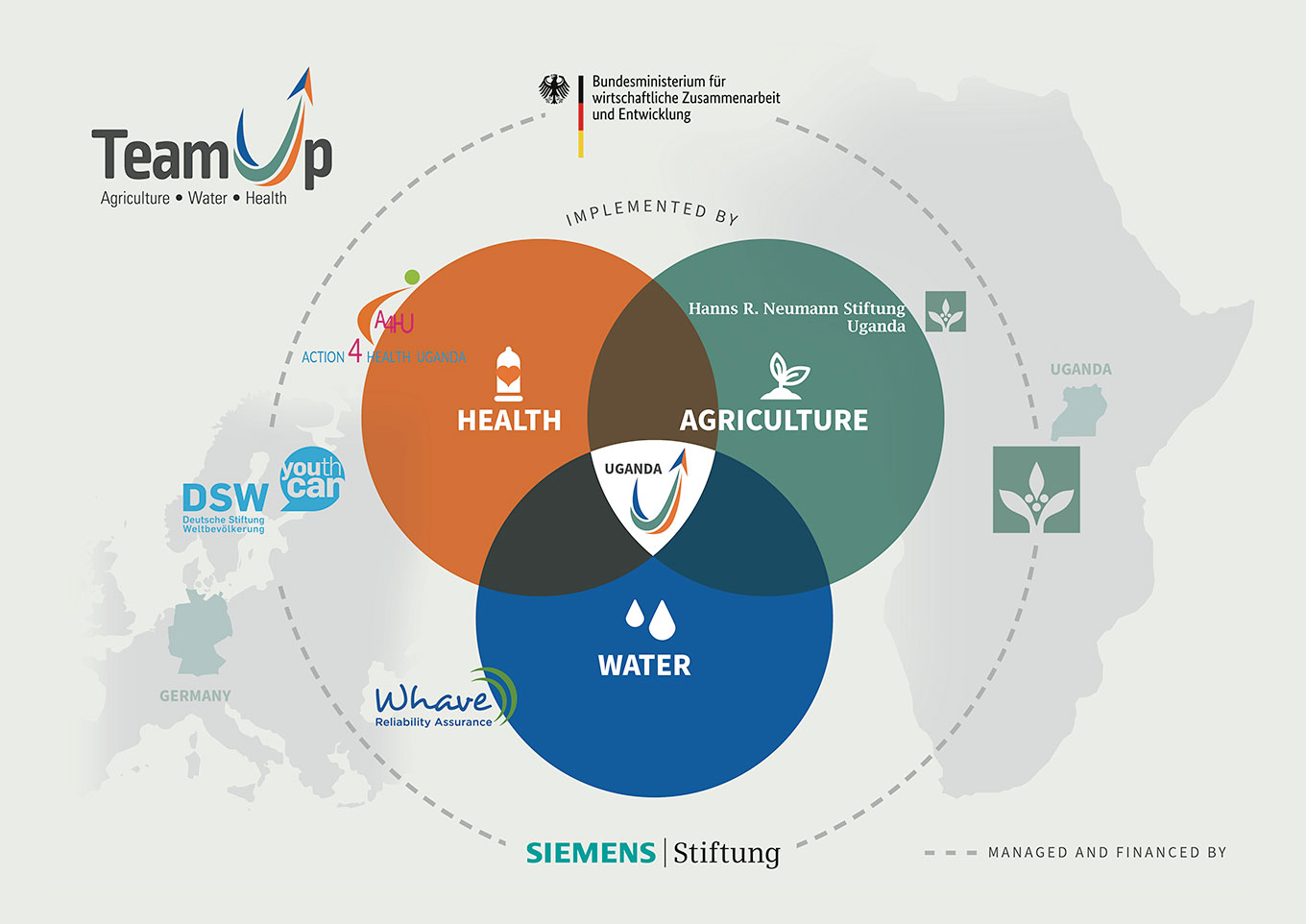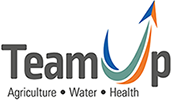Measuring of success of TeamUp Uganda is on the ability of the three implementing partners to work together in a multi sectoral format that improves the livelihood prospects of young people in rural East Africa. Throughout program implementation, successes and challenges are documented continuously and carefully with a scale up of TeamUp the ultimate goal that ensures integration of lessons learned. TeamUp will directly benefit 50,000 youth aged between 15 to 30 years.
Health
Improving young people’s knowledge and application of SRH through;
- Training of young people as peer facilitators, educators and youth champions to cascade peer to peer information on SRH
- Supporting young people to identify platforms on which to advocate for their needs
- Supporting social economic development for youth through engagement in income generating activities
- Promoting budget advocacy
- Training government extension workers on service delivery to young people
Agriculture
Improving sustainable livelihood through;
- Economic empowerment from agribusiness
- Youth development through training with the YFFS approach
- Gender equality and gender mainstreaming
- Climate change adaptation, and
- Protection of the environment and of natural resources.
Water
Improving access to safe and clean water as well as sanitation and hygiene through;
- Preventive maintenance of water sources
- Training of young people on proper sanitation and hygiene
- Training of young people on waste management
- Training of young people in proper menstruation hygiene management
How the Consortium Works

- Creation of comprehensive education on SRHR and family planning
- Raising awareness of WASH practices
- Safe access to clean drinking water
- Access to sanitation
- Improving the agricultural skills of young people
- Improving young people’s entrepreneurial skills
- Creating access to financial services
- Opening up markets for young people
- Strengthening the political engagement of young people
- Strengthening the involvement of young people in decision-making
- Promoting a gender-sensitive environment
- Joint office in Mityana District.
- “Shared” resources (e.g. gender & office management employees).
- The implementation partners organize workshops, campaigns and trainings together , if possible – and thus save costs and the time of all participants.
- Joint action of the partners at the district level; this gives more weight to individual partners & their topics.
- Barriers to entry in communities have been shown to decrease due to the close cooperation of the partners, e.g. Whave in the TeamUp communities needs significantly less preparation time for their approach than in other areas.
- Expanding their own networks is also beneficial for the target group: this opens up larger markets and new educational opportunities for young people, among other things.
